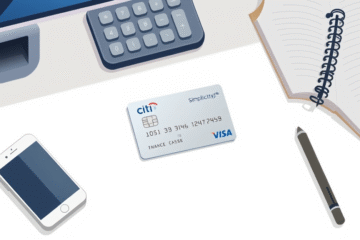Understanding Credit Card Versus Debit Card Use
Card Comparison: In today’s financial landscape, understanding the differences between credit and debit cards is essential for effective money management.
While both tools serve the purpose of facilitating transactions, their functionalities and implications on personal finances vary significantly.
This article will explore the key differences, focusing on borrowing versus direct spending, the impact on credit scores, budget management strategies, interest and repayment responsibilities, and spending limits.
By delving into these aspects, readers will be better equipped to make informed decisions about which card best suits their financial needs.
Quick Comparative Snapshot
Credit cards and debit cards are essential tools in modern personal finance, each serving distinct purposes.
Consumers use credit cards for transactions that offer a form of borrowing capacity, where purchases are charged to a line of credit.
This capability allows users to buy now and pay later, sometimes benefiting from rewards or cash back.
On the other hand, debit cards facilitate immediate fund withdrawal from the cardholder’s existing bank account.
This ensures that spending is closely tied to the available balance, promoting a more disciplined approach to managing finances.
According to Huntington Bank’s detailed analysis can serve as a valuable resource.
Operational Details
At the point of sale, consumers can choose between credit and debit cards to complete their transactions.
A credit card allows for the borrowing of funds up to a specified limit, enabling purchases that can be paid back later, while a debit card withdraws money directly from the user’s bank account, ensuring they only spend what they have.
Understanding the operational details of each card type is essential for managing personal finances and making informed buying decisions.
Transaction Processing
When a cardholder initiates a purchase, the processing of credit card and debit card transactions differ significantly.
When using a credit card, the transaction begins with the cardholder swiping or entering their card details.
This action sends a request for authorization to the issuing bank, checking available credit.
Once approved, funds are allocated, not withdrawn, and the merchant completes the sale.
Simultaneously, the settlement process starts, as described on Stripe’s credit card guide.
Later, the merchant receives funds typically within 1-3 days.
In contrast, with a debit card, funds move more directly.
Upon swiping, the request checks for sufficient balance in the cardholder’s bank account.
Once verified, funds are immediately deducted from their account and transferred to the merchant’s bank.
This process involves lower fees compared to credit transactions, as highlighted by SDK Finance.
The transaction completes swiftly, ensuring merchants receive their money quicker.
Understanding these processes allows users to make informed decisions about payment options, balancing financial flexibility with budget control.
Limits and Authorization
Credit cards and debit cards differ significantly in terms of spending limits and authorization processes.
Credit cards allow users to borrow funds up to a specified limit.
Important to note, credit card transactions undergo a more complex authorization process due to borrowing aspects.
This includes checks such as
- Credit limit verification
to ensure you haven’t exceeded your borrowing capacity.
Real-world examples of declined transactions often involve exceeding this credit limit.
In contrast, debit cards draw directly from the available balance in your bank account.
When you make a purchase with a debit card, the bank system verifies that you have enough funds, a process usually quicker than credit authorizations.
Declines are common if the account balance is insufficient.
Additionally, while credit card authorizations can temporarily hold funds or credit, debit cards rely on the account’s current balance.
To delve deeper into these processes, visit the Fibre FCU Guide.
Financial Consequences
Understanding the financial consequences of using credit and debit cards is crucial for making informed spending decisions.
Comprehending fees, interest rates, and the impact of credit on your financial health can significantly affect your budgeting and long-term financial goals.
By evaluating these factors, you can choose the card type that best aligns with your needs and helps you avoid potential pitfalls.
Credit Impact
Credit cards and debit cards have distinct impacts on credit scores and budgeting habits.
Credit card use can directly influence your credit score by affecting factors like
payment history
,
credit utilization
, and account age.
Experian explains how this activity can either boost or hurt your score depending on your management.
In contrast, debit cards do not alter your credit score but are helpful for budget management since you only spend existing funds.
- Payment History
- Credit Utilization
- Credit Age
illustrate how credit cards affect credit metrics.
Establishing good credit requires wise credit card use, evident in consistent repayments and keeping debt minimal, which is different from debit card reliance that does not build credit but aids financial control.
Costs and Obligations
Credit cards often come with numerous fees, including annual fees, late payment fees, and over-limit fees.
They also charge a high interest rate if the balance isn’t paid in full, potentially leading to increasing debt.
This makes repayment responsibilities critical to manage.
Debit cards, however, typically avoid such fees but do not affect credit history.
They deduct funds directly from the bank account, thus reducing overspending.
Consequently, understanding the critical distinctions in fees and obligations between the two is crucial.
The table below highlights fee differences:
| Card Type | Annual Fee |
|---|---|
| Credit | $95 |
| Debit | $0 |
Therefore, while credit cards offer the benefit of building credit, they require careful management to avoid unsustainable debt.
Prioritizing the right card based on individual financial habits is advantageous.
Incorporating these considerations will lead to more informed financial choices, avoiding unwanted financial strains.
In conclusion, choosing between a credit card and a debit card depends on individual financial habits and goals.
By understanding their unique features, you can make decisions that enhance your financial well-being.



0 Comments